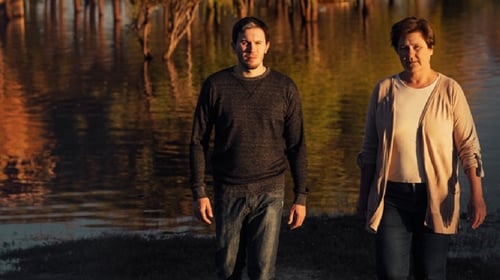
Producer
Marcel Keoroglian, a public figure in Uruguay thanks to his works in carnival, television, radio and cinema, has at home eighteen records of the 1949 carnival that have never been heard. These records were recorded by José Goglian, an Armenian immigrant, who in the 1940s lived in Villa del Cerro (a Montevidean neighborhood made up of many immigrant groups) and who invited his neighbour carnival musicians to his apartment to record them with a phonograph. This documentary is focused on Marcel's passionate bond with the murga genre, as he writes the lyrics for a group that is preparing for the next carnival, while looking for a way to revive the music of these albums that awaited sixty-eight years to be heard.

Assistant Director
Marcel Keoroglian, a public figure in Uruguay thanks to his works in carnival, television, radio and cinema, has at home eighteen records of the 1949 carnival that have never been heard. These records were recorded by José Goglian, an Armenian immigrant, who in the 1940s lived in Villa del Cerro (a Montevidean neighborhood made up of many immigrant groups) and who invited his neighbour carnival musicians to his apartment to record them with a phonograph. This documentary is focused on Marcel's passionate bond with the murga genre, as he writes the lyrics for a group that is preparing for the next carnival, while looking for a way to revive the music of these albums that awaited sixty-eight years to be heard.

Producer
Dr. Vladimir Roslik was born and raised in the town of San Javier, founded by Russian immigrants on the banks of the Uruguay River, and graduated as a doctor in Moscow in the late 1960s during the Cold War. He later decided to return to his small town in Uruguay to practice his profession, for which he obtained the affection and respect of the community. Vladimir Roslik was assassinated in 1984 during the dictatorship during a torture session, and it is considered the last death of the Uruguayan military dictatorship. Today, more than 36 years after his crime, it is still not known who the intellectual authors of the military operation that caused his death were. This documentary traces the life of Mary and Valery, the widow and son of Dr. Vladimir Roslik. They are currently seeking to heal a wound that is theirs, and of their community, as victims of an irrational political and ethnic persecution, under the shadow left by a law that prevented justice for the murders.

Assistant Director
Dr. Vladimir Roslik was born and raised in the town of San Javier, founded by Russian immigrants on the banks of the Uruguay River, and graduated as a doctor in Moscow in the late 1960s during the Cold War. He later decided to return to his small town in Uruguay to practice his profession, for which he obtained the affection and respect of the community. Vladimir Roslik was assassinated in 1984 during the dictatorship during a torture session, and it is considered the last death of the Uruguayan military dictatorship. Today, more than 36 years after his crime, it is still not known who the intellectual authors of the military operation that caused his death were. This documentary traces the life of Mary and Valery, the widow and son of Dr. Vladimir Roslik. They are currently seeking to heal a wound that is theirs, and of their community, as victims of an irrational political and ethnic persecution, under the shadow left by a law that prevented justice for the murders.



